Dissent: A Feature
Last December, I asked some poets if they would contribute to Plume something that expressed, however obliquely, their reaction to the presidential election of 2024. Five poets sent me back poems, and one sent a series of paintings. I can’t imagine doing this feature as a much younger poet. When I was in graduate school, for example, there was a distinct prejudice against “political” writing. Poetry that referenced current events risked being didactic or ham-handed, unless it was tongue-in-cheek; overall there was the vague feeling that that we should, in William Pierce’s words “avoid politicized terrain, in order to preserve its grant of exemption―the presumed neutral pH of literature.” But thankfully that’s an attitude most artists grow out of, because of course art is not separate from life. It is not just the act of creating but of being aware, of being (yes) awake—not just regarding beauty or truth but everything, including the events affecting our lives now. Art reminds us to pay attention, to imagine, to feel, even when it hurts to do so. Finally, you and I must keep writing and reading and painting because as Rebecca Solnit said: They want you to feel powerless and surrender and let them trample everything and you are not going to let them. You are not giving up, and neither am I.
Kathy Fagan
JANUARY 6th
From an upstairs window I see our neighbor’s vintage BMW parked on the street in front of his house again, as it usually is, rear bumper in exact alignment with the edge of his property. He garages only his new 4WD Mercedes and Volvo wagons. I hadn’t met a man like him until college, working in the library periodicals department, where rich boys read the Wall Street Journal and scored weed. Like the Korean mask-dance monster, Yeongno, I was ready to eat them. I was hungry all the time then. Hate is a strong word, Kath, my mother said, use it wisely. I imagine those boys now, retired CEOs, judges, congressmen, tossing their dogs good boots to play with, admiring the way their jaws drag down, just a little, as they bite down and fetch.
Kathy Fagan’s sixth poetry collection, winner of the William Carlos Williams Poetry Prize, is Bad Hobby (Milkweed Editions, 2022), available in print and audio. Sycamore (Milkweed, 2017) was a finalist for the 2018 Kingsley Tufts Award. A 2023 Guggenheim Fellow, she teaches poetry at The Ohio State University, where she co-founded the MFA Program and co-edits The Journal/OSU Press Wheeler Poetry Prize Series.
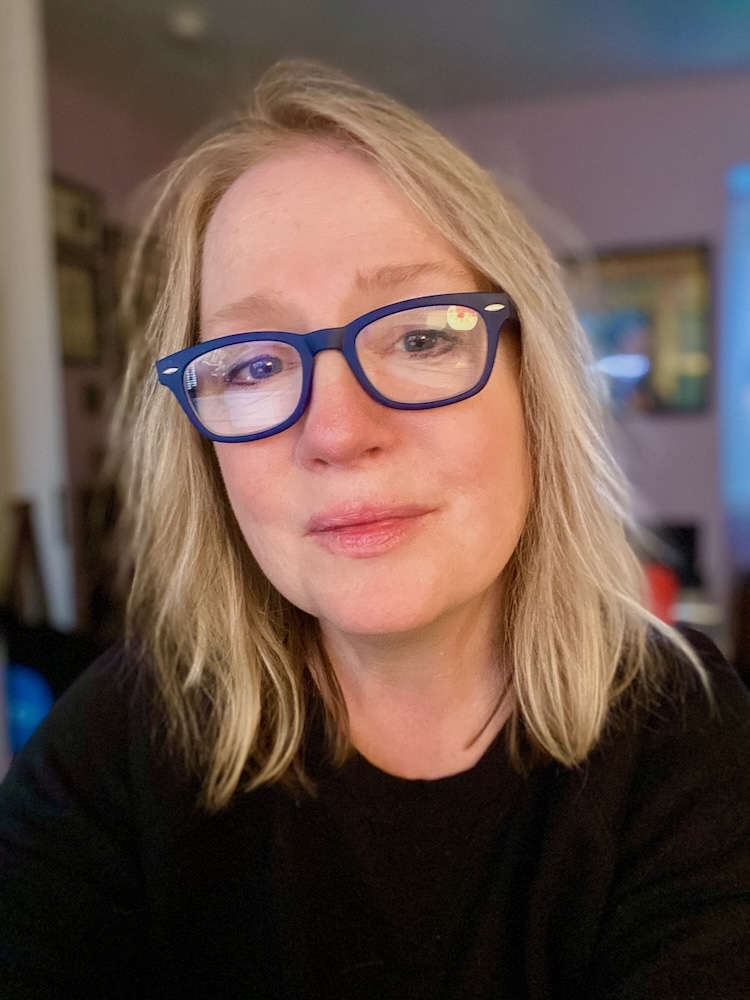
Heather June Gibbons
Every Sale Is A Fire Sale
People who hashtag the Arctic identify
with ice caps, noble and melting.
We love the word resist.
Everyone adores a singing bowl, including me.
But I’d rather be kindling. I’m cut up
and adequately seasoned.
Trees beat ice caps every day online.
I’ve seen AI-generated elves
riding rainbows in a low-res sky.
Stuff of nightmares. I want to be a Redwood
and live off fog and filtered sunlight.
I want to be that straight and high.
Heather June Gibbons is the author of the poetry collection Her Mouth as Souvenir, winner of the Agha Shahid Ali Poetry Prize, and a finalist for the Northern California Book Award. She has received fellowships and awards from the Academy of American Poets, Vermont Studio Center and the Fine Arts Work Center. She lives in San Francisco.

Lauren Camp
We Did Everything You’d Do
Some let their minds be a million evenings and two separate mythologies.
The screen pours out sunsets though we signed up for notices that bring truth every
eighth of a second.
We knelt for each conjugation of should.
We spoke liquidly anger and glances through mirrors that lingered only on sour
places. Everything matters but what appears most luminous somehow we feel as time
dragging along, retelling a story.
Days the sun murmured its cherries. Snow came and left the damp iterations. We
looked terribly unsettled.
Some thought the trick was to block the opulent world, recalculate the margin. Others
said everyone beheld and beholden and hiding and daring.
At the end there’d be glimmers, but of what? And who could we even remind
ourselves of?
Lauren Camp serves as New Mexico Poet Laureate. She is the author of eight poetry collections, most recently In Old Sky (Grand Canyon Conservancy, 2024), which grew out of her experience as Astronomer-in-Residence at Grand Canyon National Park. Camp has received fellowships from the Academy of American Poets and Black Earth Institute, the Dorset Prize, a Glenna Luschei Award from Prairie Schooner, and finalist citations for the Arab American Book Award and Adrienne Rich Award. www.laurencamp.com
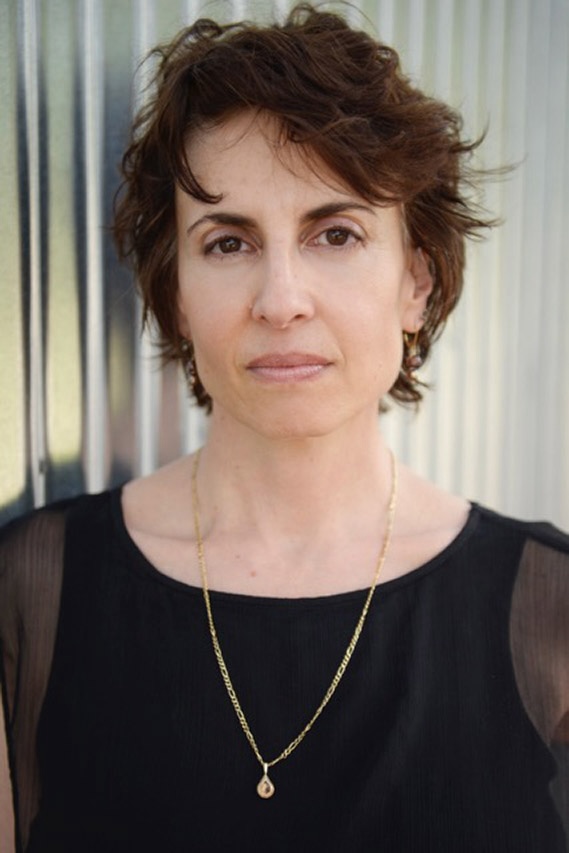
(c)Bob Godwin/rgbphotography@mac.com
Luisa A. Igloria
The Labor of Care
O for a windfall of care, to take us through
the unkindness of days. The kind of care
not afraid of touch, not afraid to come close,
you know? To ask are you OK? Maybe
even to hug. The world is full of hard things
no one wants to talk about, even if we
really wish we could just let the moment lead
from the cultivated labor of surfaces to
the awkward surrender of our innermosts. I wish
we could sit without fidgeting, talk without
thinking of the quickest escape. Let’s tell each
other, before they skitter like rocks into a well,
what words we’ve had to invent sometimes, to signal
that we want to talk about love or being alive.
Luisa A. Igloria is the author of Caulbearer (Immigrant Writing Series Prize, Black Lawrence Press, 2024), Maps for Migrants and Ghosts (Co-Winner, 2019 Crab Orchard Open Poetry Prize), The Buddha Wonders if She is Having a Mid-Life Crisis (2018), 12 other books, and 4 chapbooks. She is lead editor, along with co-editors Aileen Cassinetto and Jeremy S. Hoffman, of Dear Human at the Edge of Time: Poems on Climate Change in the U.S. (Paloma Press, 2023), offered as a companion to the Fifth National Climate Assessment (NCA5). Originally from Baguio City, she makes her home in Norfolk VA where she is the Louis I. Jaffe and University Professor of English and Creative Writing at Old Dominion University’s MFA Creative Writing Program. She also leads workshops for and is a member of the board of The Muse Writers Center in Norfolk. Luisa is the 20th Poet Laureate of the Commonwealth of Virginia (2020-22), Emerita. During her term, the Academy of American Poets awarded her a 2021 Poet Laureate Fellowship.
https://linktr.ee/thepoetslizard
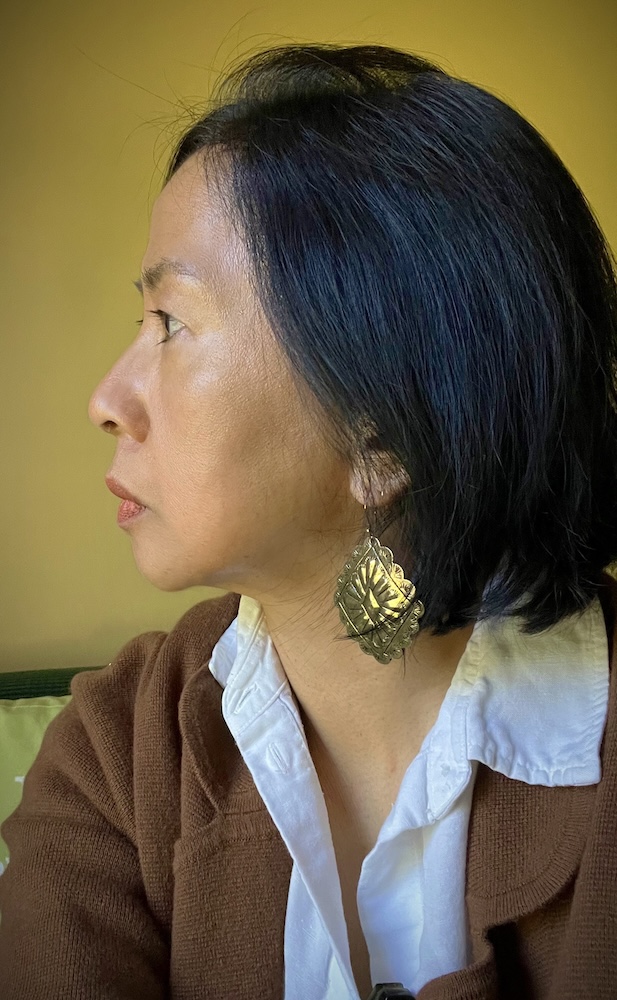
Miho Nonaka
Periodic Cicadas 2024
For the first time in more than two centuries, two groups of cicadas emerge at once in the
Heartland. Last time this happened, Thomas Jefferson was in office. The purpose of their
invasion, the local news anchor says, isn’t only to captivate our attention. It’s the nature’s way of
telling us to come together at this divisive time in this divided country. But would those 13- and
17-year-olds even take notice of each other on the march up the tree trunk? They just can’t wait
to climb out of their nymph skeletons. They are born to sing. That’s what I tell my son during our
walk, counting hundreds of cicadas. Many are unsuccessful. We see their bodies stuck like
bullets in amber shells, wings still twitching, eyes like cinnabar beads. After 13 or 17 years of
longing, shouldn’t they be allowed, at least, a ghost of a song—even a song of failure?
More often than not, I feel I am such a song. The weight of my son’s hand in mine is like
someone else’s dream, unreliable as snow. He has long given up on counting cicadas; there are
billions of them, after all. And by now, we have stepped off the road and entered the forest of
their songs, their voices raining down from every branch, tiny bells ringing and weaving the
walls of sound all around us. If I close my eyes, if I let go of my son’s hand, I begin to dissolve
into their shimmering fabric. How can I explain to him, who doesn’t speak my mother tongue,
part of me wants to dissolve so completely that no one will ever reach me again or find me an
intruder in this country, and I will rest, because being consumed by the songs of cicadas, 13- or
17-year-old, ghost or alive, failed or not, will finally be enough.
Miho Nonaka is a bilingual poet from Tokyo. She is the author of The Museum of Small Bones (Ashland Poetry Press, 2020) and the Japanese translator of Louise Glück’s The Wild Iris (KADOKAWA, 2021). She has received multiple nominations for the Pushcart Prize and the Best of the Net Award, and her poems, essays, and translation have appeared in various journals and anthologies, including Kenyon Review, Ploughshares, Tin House, Southern Review, Iowa Review, Copper Nickel, and American Odysseys: Writings by New Americans. She teaches literature and creative writing at Wheaton College in Wheaton, Illinois.
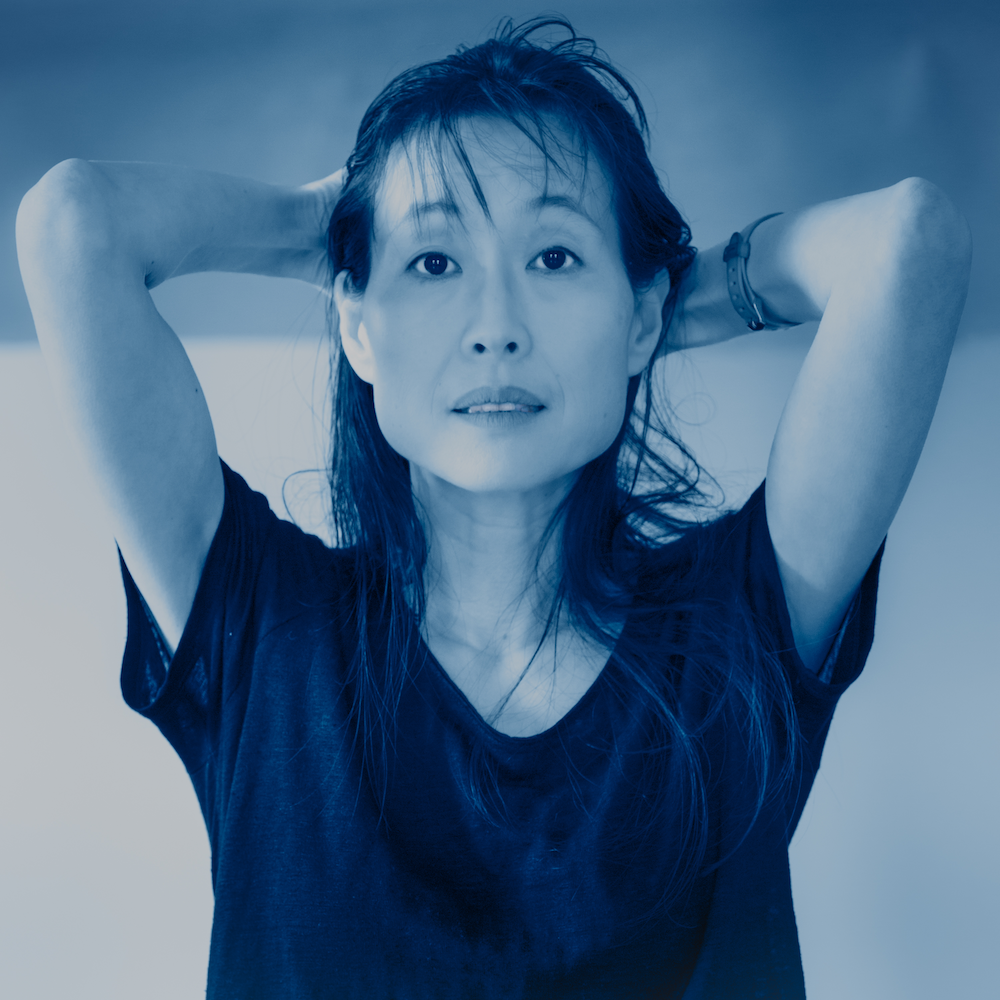
Regan Good
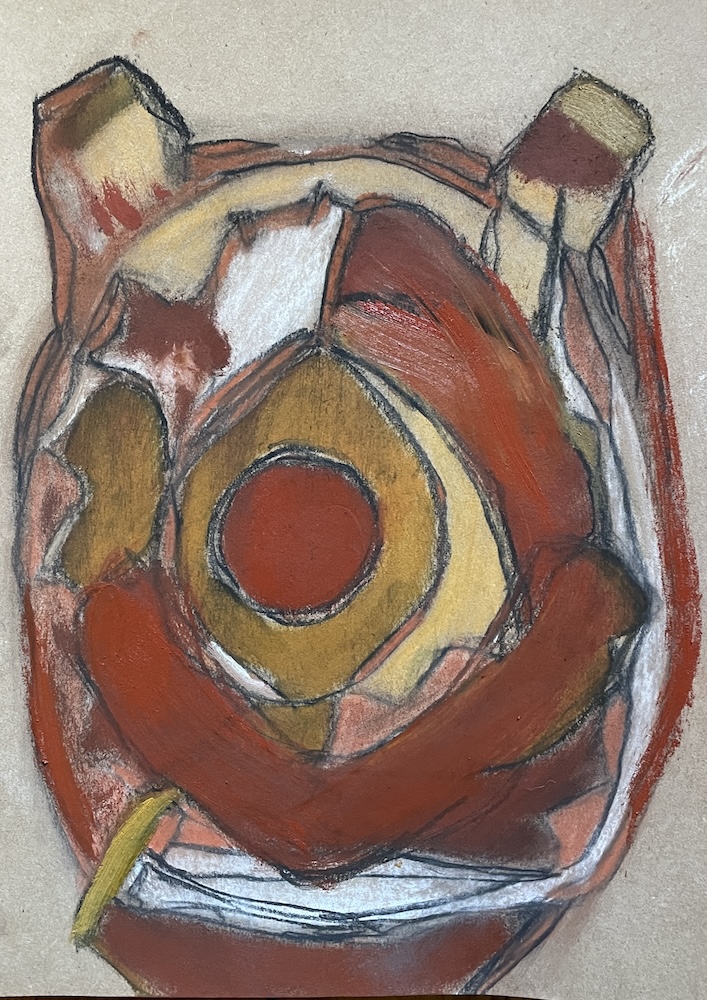
The Great American Clown Heart
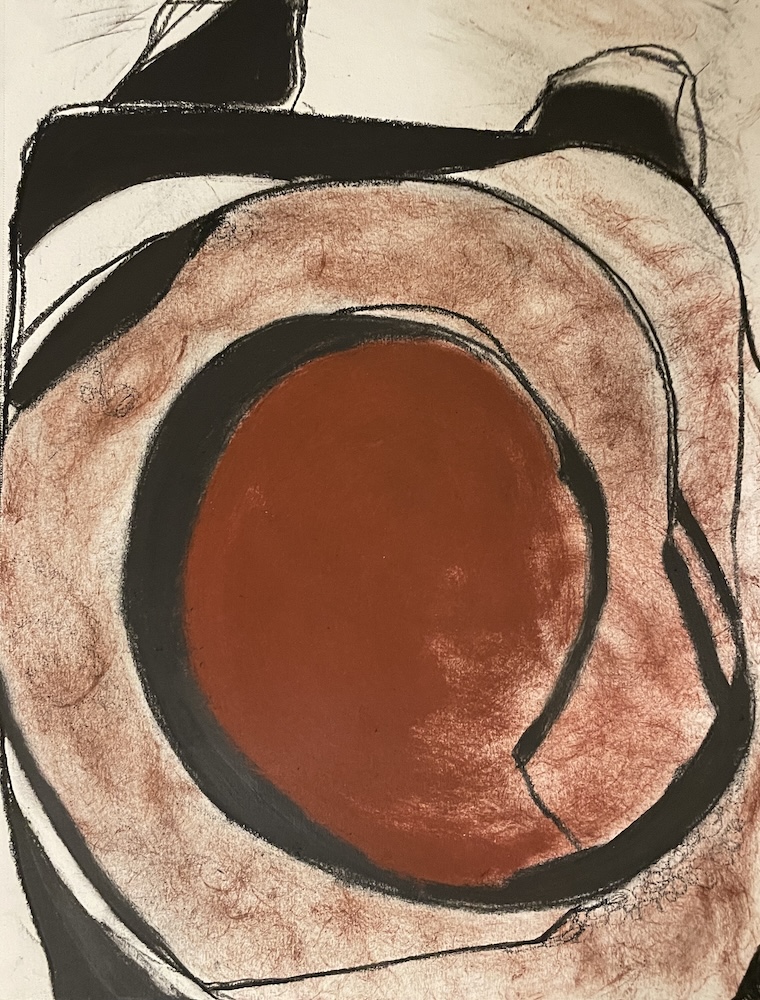
The Horrible Human Heart aka The Bloated American Heart is Mostly Fat
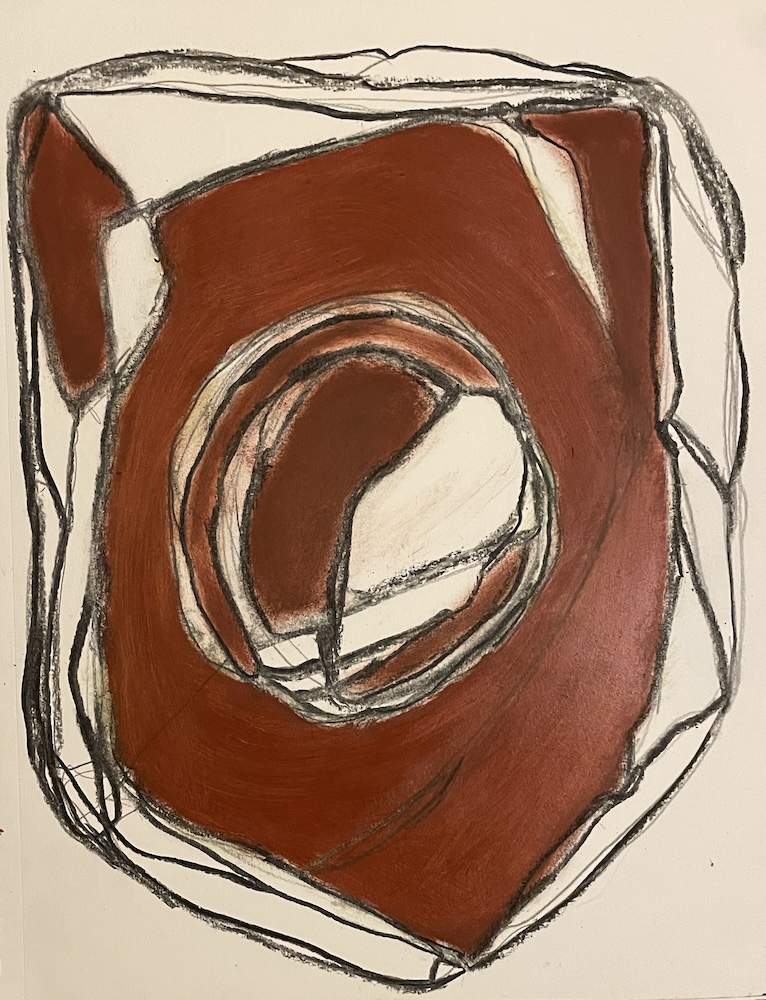
The Human Heart
Regan Good is a poet living in Brooklyn, New York. She attended the Iowa Writers’ Workshop 300 years ago. She teaches writing and literature in the School of Architecture at the Pratt Institute. She has published two books of poetry, The Atlantic House and The Needle, and a book of artwork called, Paintings for Saskia. She began making visual art in the last few years after the death of her friend, poet Saskia Hamilton.
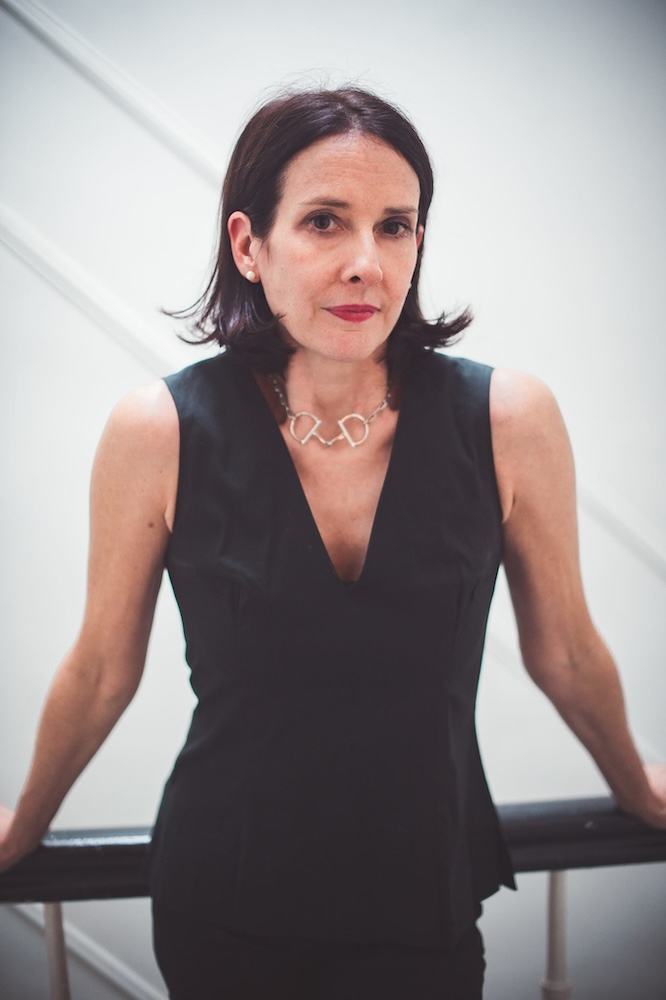
photo credit: Mia Isabella Photography

